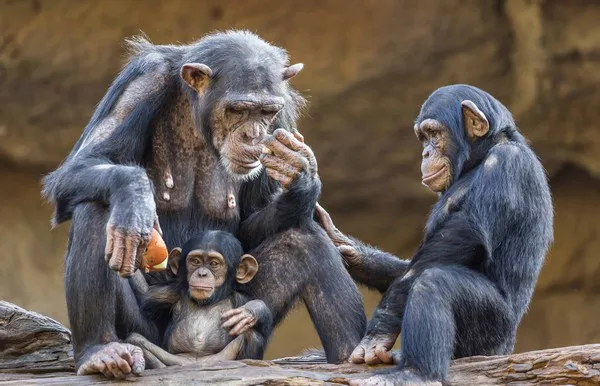Intelligence in the animal kingdom is a fascinating phenomenon that encompasses a diverse array of cognitive abilities, problem-solving skills, and social behaviors. From the depths of the ocean to the vast expanse of the savanna, animals have evolved remarkable adaptations that enable them to thrive in diverse ecological niches. In this article, we embark on a journey to explore the intelligence of Earth’s top 10 smartest animals, shedding light on the cognitive prowess of our fellow inhabitants of the natural world.
Understanding Animal Intelligence
Animal intelligence refers to the ability of non-human animals to perceive, process, and adapt to information from their environment, exhibiting behaviors that demonstrate learning, memory, problem-solving, and social cognition. While human intelligence is often considered the pinnacle of cognitive evolution, many animal species possess sophisticated cognitive abilities that rival or surpass those of humans in specific domains.
The study of animal intelligence encompasses a wide range of disciplines, including ethology, comparative psychology, neuroscience, and evolutionary biology. Researchers employ a variety of methods to assess animal cognition, including behavioral experiments, observational studies, neuroimaging techniques, and computational modeling. By investigating the cognitive capacities of animals, scientists gain insights into the evolution of intelligence, the neural mechanisms underlying complex behaviors, and the adaptive significance of cognitive abilities in different ecological contexts.
Top 10 Smartest Animals in the World
1. Chimpanzees (Pan troglodytes)
Chimpanzees, our closest living relatives, are renowned for their exceptional cognitive abilities, including problem-solving skills, tool use, and complex social behaviors. These highly intelligent primates exhibit a wide range of cognitive capacities, making them one of the smartest animals on Earth.
Tool Use: Chimpanzees are adept tool users, capable of fashioning and using a variety of tools for different purposes, such as foraging, grooming, and communication. They use sticks to extract termites from mounds, stones to crack open nuts, and leaves as sponges to drink water.
Social Intelligence: Chimpanzees exhibit complex social behaviors, including cooperation, communication, and conflict resolution. They form long-term social bonds with family members and group mates, engage in collaborative hunting and food sharing, and demonstrate an understanding of social hierarchies and alliances within their social groups.
Problem-Solving: Chimpanzees excel in problem-solving tasks that require reasoning, memory, and innovation. They can navigate complex environments, solve puzzles to obtain rewards, and exhibit insightful behaviors to overcome obstacles.
2. Bottlenose Dolphins (Tursiops truncatus)
Bottlenose dolphins are renowned for their remarkable cognitive abilities, social complexity, and communication skills. These highly intelligent marine mammals exhibit a wide range of behaviors that showcase their cognitive prowess, making them one of the smartest animals in the ocean.
Social Cohesion: Bottlenose dolphins live in complex social groups known as pods, where individuals form long-term relationships and engage in cooperative behaviors such as hunting, mating, and caring for offspring. They demonstrate empathy, cooperation, and social learning in their interactions with conspecifics.
Communication: Bottlenose dolphins have a sophisticated communication system involving a wide range of vocalizations, body postures, and gestures. They use signature whistles to identify themselves and coordinate group activities, as well as echolocation to navigate their environment and locate prey.
Problem-Solving: Bottlenose dolphins exhibit advanced problem-solving skills, particularly in tasks involving foraging, object manipulation, and tool use. They can use their beaks and bodies to manipulate objects, cooperate with conspecifics to solve complex problems, and exhibit innovative problem-solving strategies in novel situations.
3. Elephants (Loxodonta africana/ Elephas maximus)
Elephants are renowned for their remarkable cognitive abilities, emotional intelligence, and social complexity. These majestic mammals exhibit a wide range of behaviors that highlight their cognitive prowess, making them one of the smartest animals on land.
Social Bonds: Elephants live in close-knit family groups led by matriarchs, where individuals form strong social bonds and engage in cooperative behaviors such as caregiving, protection, and communication. They demonstrate empathy, altruism, and cooperation in their interactions with family members and group mates.
Problem-Solving: Elephants exhibit advanced problem-solving skills, particularly in tasks involving foraging, navigation, and tool use. They can use their trunks and feet to manipulate objects, solve puzzles to obtain rewards, and exhibit innovative problem-solving strategies to overcome obstacles.
Memory: Elephants have exceptional long-term memory, enabling them to remember past experiences, recognize individual conspecifics, and navigate complex social dynamics. They demonstrate a sophisticated understanding of their environment and the ability to adapt their behaviors based on past learning experiences.
4. Border Collies (Canis lupus familiaris)
Border collies are renowned for their exceptional intelligence, problem-solving abilities, and trainability, making them one of the smartest dog breeds in the world. These highly intelligent canines exhibit a wide range of behaviors that showcase their cognitive prowess and working dog instincts.
Problem-Solving: Border collies excel in problem-solving tasks that require reasoning, memory, and spatial cognition. They can navigate complex environments, solve puzzles to obtain rewards, and exhibit innovative problem-solving strategies to overcome obstacles.
Trainability: Border collies are highly trainable dogs known for their obedience, responsiveness, and eagerness to work. They excel in a variety of canine sports and activities, including obedience trials, agility competitions, and herding trials, where they demonstrate their exceptional trainability and working dog instincts.
Social Intelligence: Border collies exhibit advanced social intelligence, forming strong bonds with their human handlers and demonstrating an understanding of human communication cues. They excel in tasks that require cooperation, communication, and teamwork, making them invaluable working partners in various fields.
5. Ravens (Corvus corax)
Ravens are renowned for their exceptional cognitive abilities, problem-solving skills, and social complexity, making them one of the smartest birds in the world. These highly intelligent corvids exhibit a wide range of behaviors that highlight their cognitive prowess and adaptability.
Problem-Solving: Ravens excel in problem-solving tasks that require reasoning, memory, and innovation. They can navigate complex environments, solve puzzles to obtain rewards, and exhibit insightful behaviors to overcome obstacles.
Tool Use: Ravens are adept tool users, capable of using a variety of objects for different purposes, such as foraging, communication, and defense. They use sticks to extract insects from crevices, stones to crack open nuts, and even manipulate objects to distract predators or competitors.
Social Intelligence: Ravens exhibit complex social behaviors, including cooperation, communication, and conflict resolution. They form long-term social bonds with family members and group mates, engage in cooperative breeding and food sharing, and demonstrate an understanding of social hierarchies and alliances within their social groups.
6. Octopuses (Order Octopoda)
Octopuses are renowned for their exceptional cognitive abilities, problem-solving skills, and morphological adaptations, making them one of the smartest invertebrates in the world. These highly intelligent cephalopods exhibit a wide range of behaviors that showcase their cognitive prowess and adaptability.
Problem-Solving: Octopuses excel in problem-solving tasks that require spatial cognition, object manipulation, and memory retrieval. They can navigate complex environments, manipulate objects with their arms and suckers, and exhibit innovative problem-solving strategies to obtain rewards.
Camouflage and Mimicry: Octopuses have exceptional camouflage abilities, allowing them to blend seamlessly into their environment and avoid detection by predators. They can change color, texture, and body shape to match their surroundings, demonstrating a sophisticated understanding of visual perception and predator-prey interactions.
Learning and Memory: Octopuses have excellent learning and memory capabilities, enabling them to remember past experiences, recognize familiar individuals, and adapt their behaviors based on past learning experiences. They demonstrate a high level of cognitive flexibility and problem-solving skills in various ecological contexts.
7. Orcas (Orcinus orca)
Orcas, also known as killer whales, are renowned for their exceptional cognitive abilities, social complexity, and hunting strategies, making them one of the smartest marine mammals in the world. These highly intelligent cetaceans exhibit a wide range of behaviors that showcase their cognitive prowess and adaptability.
Social Cohesion: Orcas live in complex social groups known as pods, where individuals form long-term relationships and engage in cooperative behaviors such as hunting, mating, and caring for offspring. They demonstrate empathy, cooperation, and social learning in their interactions with conspecifics.
Communication: Orcas have a sophisticated communication system involving a wide range of vocalizations, body postures, and gestures. They use vocalizations to coordinate group activities, communicate with conspecifics, and establish social bonds within their pod.
Hunting Strategies: Orcas exhibit advanced hunting strategies, including cooperative hunting, coordinated attacks, and specialized feeding techniques. They work together in groups to capture prey, using strategic maneuvers and communication to maximize hunting success.
8. Pigs (Sus scrofa domesticus)
Pigs are renowned for their exceptional cognitive abilities, problem-solving skills, and social complexity, making them one of the smartest domestic animals in the world. These highly intelligent mammals exhibit a wide range of behaviors that highlight their cognitive prowess and adaptability.
Problem-Solving: Pigs excel in problem-solving tasks that require reasoning, memory, and innovation. They can navigate complex environments, solve puzzles to obtain rewards, and exhibit insightful behaviors to overcome obstacles.
Social Intelligence: Pigs exhibit complex social behaviors, including cooperation, communication, and conflict resolution. They form long-term social bonds with family members and group mates, engage in cooperative behaviors such as nursing and grooming, and demonstrate an understanding of social hierarchies and alliances within their social groups.
Learning and Memory: Pigs have excellent learning and memory capabilities, enabling them to remember past experiences, recognize familiar individuals, and adapt their behaviors based on past learning experiences. They demonstrate a high level of cognitive flexibility and problem-solving skills in various social and ecological contexts.
9. Rats (Rattus norvegicus)
Rats are renowned for their exceptional cognitive abilities, problem-solving skills, and adaptability to diverse environments, making them one of the smartest rodents in the world. These highly intelligent mammals exhibit a wide range of behaviors that showcase their cognitive prowess and resourcefulness.
Problem-Solving: Rats excel in problem-solving tasks that require reasoning, memory, and innovation. They can navigate mazes, solve puzzles to obtain rewards, and exhibit insightful behaviors to overcome obstacles.
Social Intelligence: Rats exhibit complex social behaviors, including cooperation, communication, and conflict resolution. They form social hierarchies within their social groups, engage in reciprocal grooming and play behavior, and demonstrate an understanding of social dynamics and alliances.
Learning and Memory: Rats have excellent learning and memory capabilities, enabling them to remember past experiences, recognize familiar individuals, and adapt their behaviors based on past learning experiences. They demonstrate a high level of cognitive flexibility and problem-solving skills in various social and ecological contexts.
10. Bonobos (Pan paniscus)
Bonobos, also known as pygmy chimpanzees, are renowned for their exceptional cognitive abilities, social complexity, and conflict resolution strategies, making them one of the smartest primates in the world. These highly intelligent apes exhibit a wide range of behaviors that showcase their cognitive prowess and adaptability.
Social Cohesion: Bonobos live in complex social groups characterized by female dominance, cooperation, and affiliative behaviors. They form strong social bonds with family members and group mates, engage in reciprocal grooming, and use sexual behaviors as a means of conflict resolution and social bonding.
Problem-Solving: Bonobos excel in problem-solving tasks that require reasoning, memory, and innovation. They can navigate complex environments, solve puzzles to obtain rewards, and exhibit insightful behaviors to overcome obstacles.
Communication: Bonobos have a sophisticated communication system involving a wide range of vocalizations, facial expressions, and body postures. They use vocalizations and gestures to coordinate group activities, express emotions, and establish social bonds within their social group.
See Also: 8 Animals With Unusual Behaviors
Conclusion
The intelligence of Earth’s top 10 smartest animals spans a diverse range of taxa, from primates and cetaceans to birds and cephalopods, each exhibiting remarkable cognitive abilities, problem-solving skills, and social behaviors. By studying the cognitive capacities of animals, researchers gain insights into the evolution of intelligence, the neural mechanisms underlying complex behaviors, and the adaptive significance of cognitive abilities in different ecological contexts. As our understanding of animal intelligence continues to expand, we gain a deeper appreciation for the remarkable capabilities of our fellow inhabitants of the natural world and the intricate workings of the animal mind.
You Might Be Interested In:

























